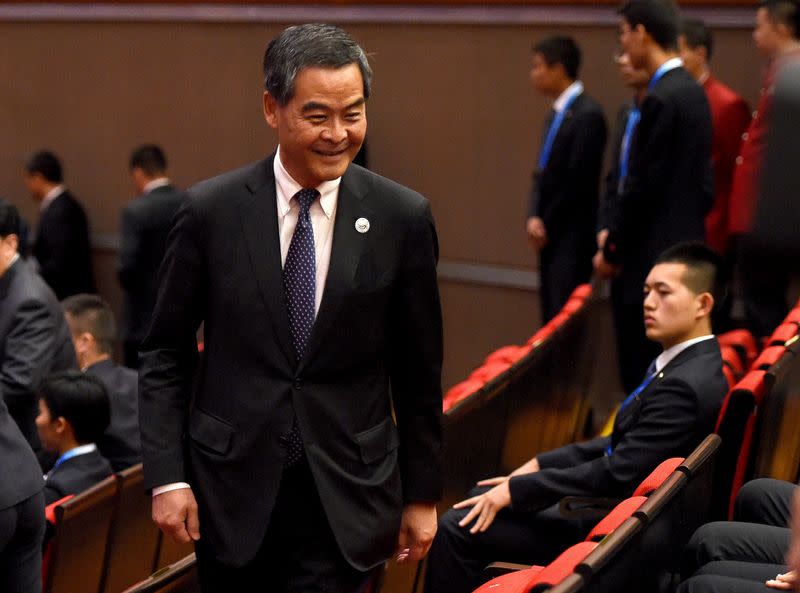Former HK leader calls out HSBC following UK criticism of security law

HONG KONG (Reuters) - Former Hong Kong leader Leung Chun-ying on Friday called out banking group HSBC Holdings plc for not making its "stance" clear on China's imposition of a new security law on the city, after the United Kingdom's criticism of the move.
"One week has passed, HSBC still hasn't expressed their stance on the national security legislation," Leung, Hong Kong's chief executive from 2012-2017, wrote in a Facebook post.
"(The) UK government is following the US government; whether or not HSBC will follow UK govt is something we need to be highly concerned about," he wrote.
HSBC declined to comment.
The comments from Leung, a vice chairman of the Chinese People's Political Consultative Conference, a top advisory body, underscore the risk for foreign businesses of becoming caught in the political crossfire amid fresh civil unrest over a law that many Hong Kongers fear will reduce their city's freedoms.
The United Kingdom, the United States, Australia and Canada have criticised China for imposing the law.
Leung said HSBC should not do things that hurts "China's sovereignty, dignity and people's feelings", while making money in that country.
"China and Hong Kong doesn't owe HSBC anything, the China business at HSBC can be replaced overnight by banks from China and other countries," he wrote.
"We need to let the UK government, politicians, British companies like HSBC know which side of the bread is buttered."
Founded in Hong Kong about 150 years ago, HSBC gets bulk of revenue from China and Hong Kong.
London-listed shares of HSBC and Standard Chartered, which also has a large exposure to Hong Kong, were down more than 2% and 3%, respectively, on Friday.
HSBC was briefly caught up in anti-government protests in Hong Kong during past months, when some of its branches were vandalised and its famous bronze lions graffitied during a protest march on Jan. 1.
(Reporting by Clare Jim and Alun John; Writing by Sumeet Chatterjee)

 Yahoo News
Yahoo News 